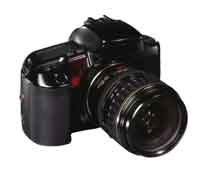 So how do you make money from writing and photography if you aren’t an expert?
So how do you make money from writing and photography if you aren’t an expert?
It’s been great weather my end over the last week (I hope it’s been good for you too!) So, I decided to escape from my desk, get out and about in the countryside and take a few photos.
But I haven’t just been doing it for fun! My couple of days out in the fresh air should still make me a few hundred pounds or so over the course of the next year!
Sounds too good to be true doesn’t it? But it isn’t. You see, illustrating your writing can be a good way to make some extra money from it. It can also make it easier to sell.
And, now that good digital cameras can be bought fairly cheaply there is no excuse for not enhancing your literary efforts with a few well-chosen photographs. You don’t need to be an expert photographer.
Tips on how to make money from your writing and photography
* As ever, study your market. If the newspaper or magazine you want to write for doesn’t use photos there is no point in sending any. (In fact it will just show to the editor that you haven’t studied their publication.)
* Don’t try to be too different. Take the same sort of photographs that are already used in the publication: things that will fit in nicely with the house style.
* Technical excellence isn’t that important. Just make sure they are well composed, clear and in good focus. Set your digital camera to the highest resolution setting it has. The photos you provide usually need to be capable of being printed at around 300dpi if they are to be used in print.
* Don’t try to be too arty or clever (unless you happen to be a skilled photographer of course). For example, amateur photos in black and white usually don’t work that well – shots like that are best left to the experts.
* Make sure the lighting is good. This is the single most important point after making sure your photos are in focus. Never use a flash for these photos. Remember that good night time photos are tricky to take. Photos taken outdoors in good daylight are usually the easiest pics to take.
* Keep the composition simple. For example, if you’re taking a photo of a building to illustrate a property article (that’s what I’ve been doing by the way) just take a simple photo of a house from the front and centralise it in the photo. Don’t experiment with unusual angles or do something that is too clever… such as climbing a tree to try and get a bird’s eye view!
* Avoid sending photos that contain a trademark: editors often won’t use these for copyright reasons. If the photo contains a recognisable person or property get their written permission to use the photo – this is known as a model release.
* There’s no need to try and retouch your photos with editing software like Photoshop. Too much editing can reduce the quality of your photos and, in any case, the magazine or newspaper will probably have experts to do any retouching if it is needed.
Remember, with digital cameras you can take hundreds of photos for free. So keep your camera handy and just snap anything and everything that you think might be useful in future.
Once you’ve written your article or whatever, choose some pics from your collection. I’d recommend you send more than one photo, but not too many. Four, five or six is a good number. This gives the editor a good choice but avoids flooding them with photos. If you’re submitting your article by mail send prints but be sure to put your name and article title on the reverse. If you’re emailing your article include them as an attachment but be sure to say what it is in your email.
Usually, magazines and newspapers will pay extra for any photos they use on top of the payment for your article. But even if they don’t photos will attract attention to your article when you send it in to the editor.
As they say, a picture really does speak a thousand words! And with a bit of luck your pictures could earn you a few thousand pounds over the years too.
By the way, here’s another way (http://www.canonburypublishing.com/camera/) of making money from your photographs that you might be interested in. It’s got nothing to do with writing and it’s really easy to do! Details here (http://www.canonburypublishing.com/camera/)
Hope you find that interesting, and that it helps you get started making some money from your writing.
